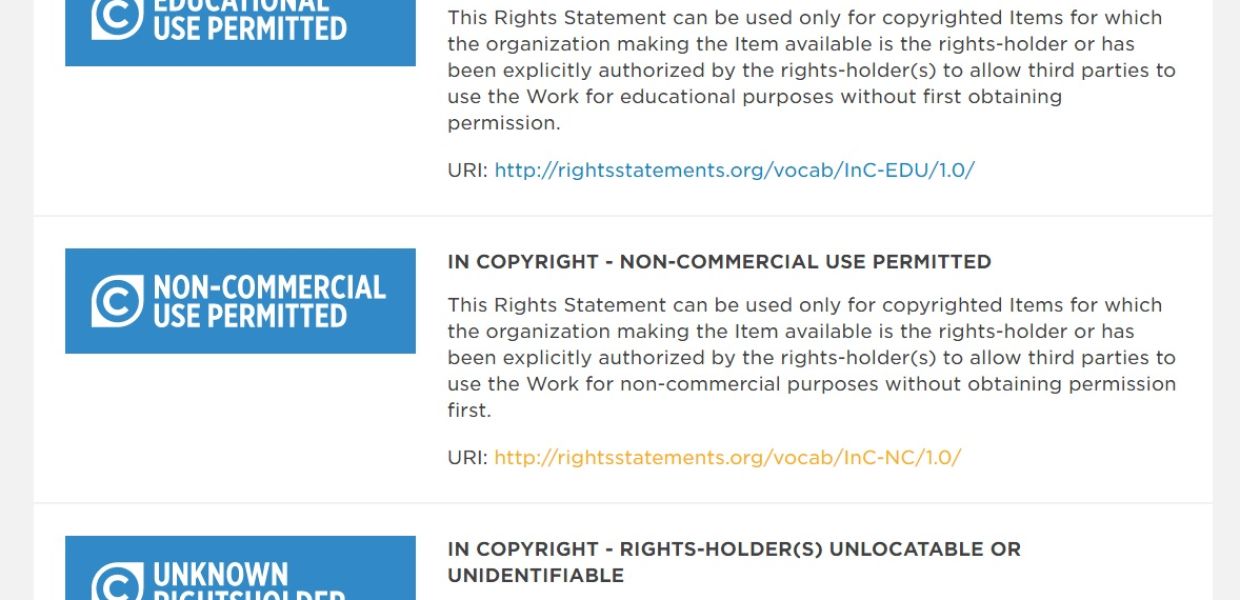Rightsstatements.org launches at DPLAfest 2016 in Washington DC

Today, Thursday 14 April, Europeana and the DPLA are launching rightsstatements.org. RightsStatements.org provides 11 standardized rights statements for online cultural heritage objects that can be used by cultural heritage institutions around the world. The rights statements make it easy to see if and how online cultural heritage works can be re-used. See press release.

Rightsstatements.org is the outcome of the International Rights Statements Working Group that was set up in 2014 by Europeana and the DPLA with support from the Knight Foundation. Other members of this Working Group include Creative Commons, Kennisland and key stakeholders from Europeana and the DPLA’s networks.
The task of the Working Group was to build a set of internationally interoperable rights statements based on the principles of the existing Europeana Licensing Framework. Until now, the Europeana Licensing framework - which has been been widely recognized as a best practice model when it comes to communicating the rights and re-use status of digitized cultural heritage objects - makes use of rights statements that have been specifically developed for use by Europeana. The Working Group was tasked with developing rights statements that work independent of a specific national or regional context.
In combination with the Creative Commons Licenses and Public Domain tools the rights statements launched today cover the whole spectrum of copyright situations encountered by cultural heritage institutions that make their collections available online. The rights statements have been designed with both human users and machine users (such as search engines) in mind and are made available as linked data.
By developing these rights statements Europeana and the DPLA want to contribute to increased standardization across our projects and collaborate with other similar initiatives around the world. Having standardized rights statements that are used by cultural heritage institutions globally will make it easier for our users to understand how they can engage with the cultural content that is made available online.
The #DPLAfest marks the kickoff for the DPLA’s effort to use the new rights statements, and Europeana plans to implement the new rights statements into the existing Europeana Licensing Framework before the end of the year. This process will begin at the upcoming Aggregators Forum in the Hague, and you can find more information about how this will happen in this factsheet.
Want to know more?
You can find more information about the rights statements and the technical architecture of RightsStatements.org in two White Papers. The White Paper “Recommendations for Standardized International Rights Statements” outlines the design principle behind our rights statements, and provides detailed information about each individual Rights Statement. The “Requirements for the Technical Infrastructure for Standardized International Rights Statements” White Paper describes the technical underpinnings of our Rights Statements.
